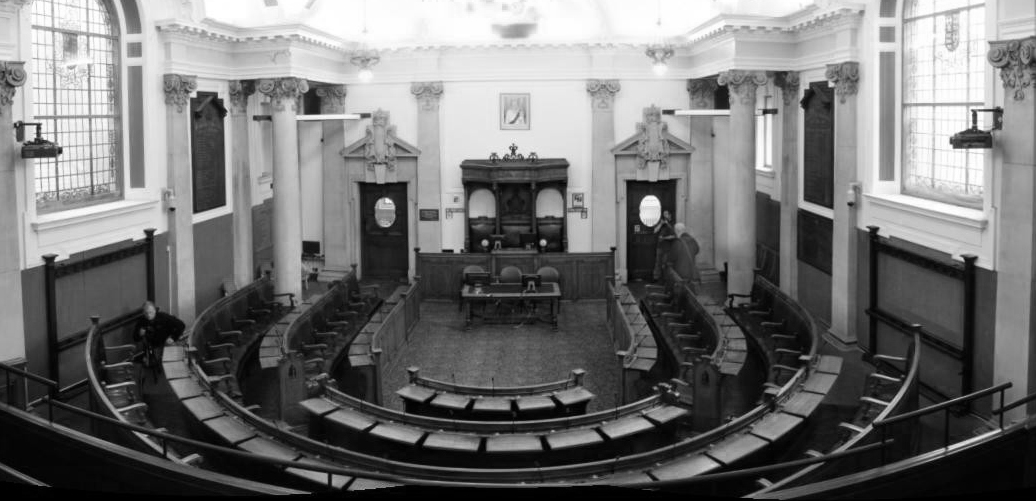Labour’s Britain: Nation building
During the recent debate surrounding the future of the United Kingdom, the separatists’ ugly and deliberate conflation of England with Toryism represented a calculated insult. England: the country of the Tolpuddle martyrs, Clement Atlee, George Orwell, William Morris, William Blake...
During the recent debate surrounding the future of the United Kingdom, the separatists’ ugly and deliberate conflation of England with Toryism represented a calculated insult. England: the country of the Tolpuddle martyrs, Clement Atlee, George Orwell, William Morris, William Blake and countless other figures whose lives shaped left wing thought not just throughout Britain but the world.
The insinuation beneath the lie was that the English are content with London’s dominance of the national economy and with how Westminster functions. Nothing could be further from the truth. In cities like Liverpool, Manchester, Newcastle and Leeds dissatisfaction with how London runs the show and how Westminster functions is about to erupt. They’re dissatisfied in Bristol, too. And Exeter. And Norfolk. And right across the Midlands.
England is a country of real contrasts, containing millions of working people who want and need progressive government.
Regional devolution is a necessity, but is only the beginning England requires. Beyond our great cities, the nation building England needs will be much more difficult. It is in the peripheral areas outside of our major conurbations all over England where the next Labour government must concentrate its efforts.
England is beset by a toxic disconnection between the governed and the governors.
Nowhere is this disconnection more keenly felt than in that forgotten England largely ignored by the political mainstream and the national media; those places people have heard of, but have never been to. In our Rugby League towns, in our lower-league football cities, a crisis is taking grip that only a progressive government can solve. Right now, Britain’s peripheral economies are experiencing a collapse in their reserves of ‘social capital’.
Social capital can be defined as those people with ‘talent’: literate, numerate, ambitious, financially adept and engaged with civic society. Successful regional economies are built upon this class – they oxygenate local economies, they act as the arteries of local and regional civic life – not just this, but in health care, local government and commerce too. In short, Labour’s task will be to create a vibrant, thriving, mercantile class. Whatever public investments these areas might receive, without the software of social capital, new hardware will be pointless.
In many places – driven by austerity – the community fabric is being destroyed and the very pillars of local society and community are disappearing.
Communities like this are now used to dealing with the consequences of factory closures – but a new challenge is on the horizon. What happens to these communities when government pulls out? Austerity isn’t just crucifying the public and private sectors in these areas, but it is causing the social capital to flee.
We can see the effects and the indicators of diminished reserves of social capital right across the public and private sector. Take the review of underperforming hospitals undertaken by Bruce Keogh. These trusts share some key characteristics – they struggle to recruit medical professionals, but scratch beneath the surface of the communities they serve and you will find similar demographics, similar issues surrounding poverty, poor local authorities, struggling schools and derelict high streets. So even when the state acts as a guarantor whereby peripheral economies should theoretically receive the same standards of and access to healthcare as the most prosperous parts of the country, the diminishing social capital in these areas begins to effect universal services provided from the centre, rendering them sub-optimal.
So as the role, nature and size of the state continues to change, the need for replenished stocks of social capital becomes imperative in our peripheral local economies.
In prosperous areas, the state can retreat and social capital will fill the void created. The reason there are few Free Schools in disadvantaged areas is because there is little social capital capable or ambitious enough to want to run a school.
But when the state retreats in peripheral economies where there is little or no social capital to speak of, the void will not be filled. A Labour agenda for a leaner state can only be delivered if social capital is first grown and invested in.
The key to doing this is to devolve power. This will result in faster, more effective delivery of better health care, better educational outcomes, better communities and stronger local economies. The devolution of power to Britain’s peripheral economies is the essential foundation stone of any meaningful effort to fundamentally address the causes of poverty in these areas. Consideration should be given to town and city charters whereby a reliable relationship between the centre and the periphery can be established and the obligations of the state nailed down. Regional pay policy for key public services should be considered, whereby the highest achieving most effective public servants are financially rewarded for choosing to work in struggling areas: a ‘tour of duty’ approach to social capital growth. Local business growth should be prioritised with the establishment of favourable lending arrangements with the banks. The growth of social capital in these areas can be achieved, and once this growth takes root, genuine social and economic transformation is possible – becoming indigenous, independent from the centre, self-sustaining and the critical enabler of a smaller, smarter state.
